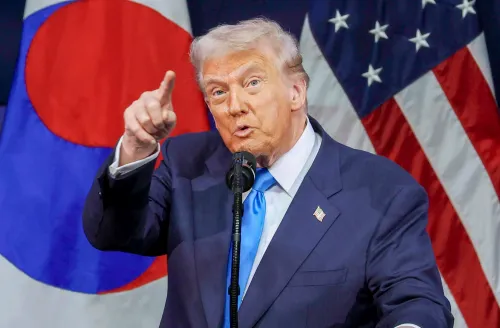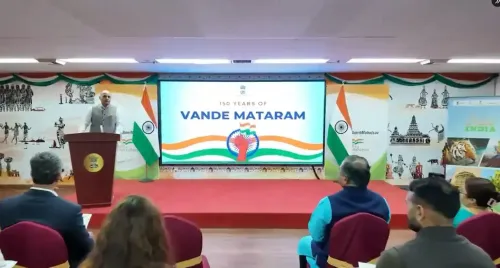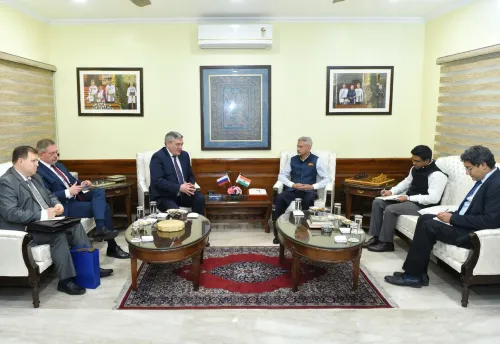Has the Cambodia-Thailand Border Situation Improved?

Synopsis
Key Takeaways
- Ceasefire implemented to ease tensions.
- Positive outcomes reported by leaders.
- Evacuees can return to normal lives.
- International mediation played a key role.
- Continued dialogue is essential for peace.
Phnom Penh, July 29 (NationPress) The situation at the Cambodia-Thailand border has significantly improved following the implementation of a ceasefire that took effect at midnight on Monday, as announced by Cambodian Prime Minister Hun Manet on Tuesday morning.
In a message shared on his official social media pages, Hun Manet stated, "The tension at the frontline has reduced after the ceasefire commenced from midnight Monday, in line with the agreement reached between Cambodia and Thailand during a special meeting in Malaysia."
"An expedited end to hostilities will facilitate the return of affected individuals, such as evacuees, to their homes, allowing them to resume their normal lives sooner," he added.
According to Cambodian Senate President Samdech Techo Hun Sen, the ceasefire and peace agreement are demonstrating positive and effective outcomes, as he conveyed in a post on his official social media platforms.
Leaders from Thailand and Cambodia have concurred on a ceasefire commencing at midnight on Monday, as reported by Malaysian Prime Minister Anwar Ibrahim following a meeting he hosted in Malaysia, according to Xinhua news agency.
Both nations agreed on an "immediate and unconditional" ceasefire after discussions in Kuala Lumpur, mediated by Prime Minister Anwar Ibrahim.
A joint press statement revealed that the special meeting was chaired, hosted, and witnessed by Prime Minister Ibrahim in Putrajaya, Malaysia, with Prime Minister Manet and Thailand’s Acting Prime Minister Phumtham Wechayachai in attendance.
The talks took place amidst rising tensions and border skirmishes between Cambodia and Thailand, which have greatly disturbed regional peace.
The exchange of gunfire between Cambodian and Thai soldiers over disputed border areas began on July 24, with both nations accusing each other of breaching international law.









